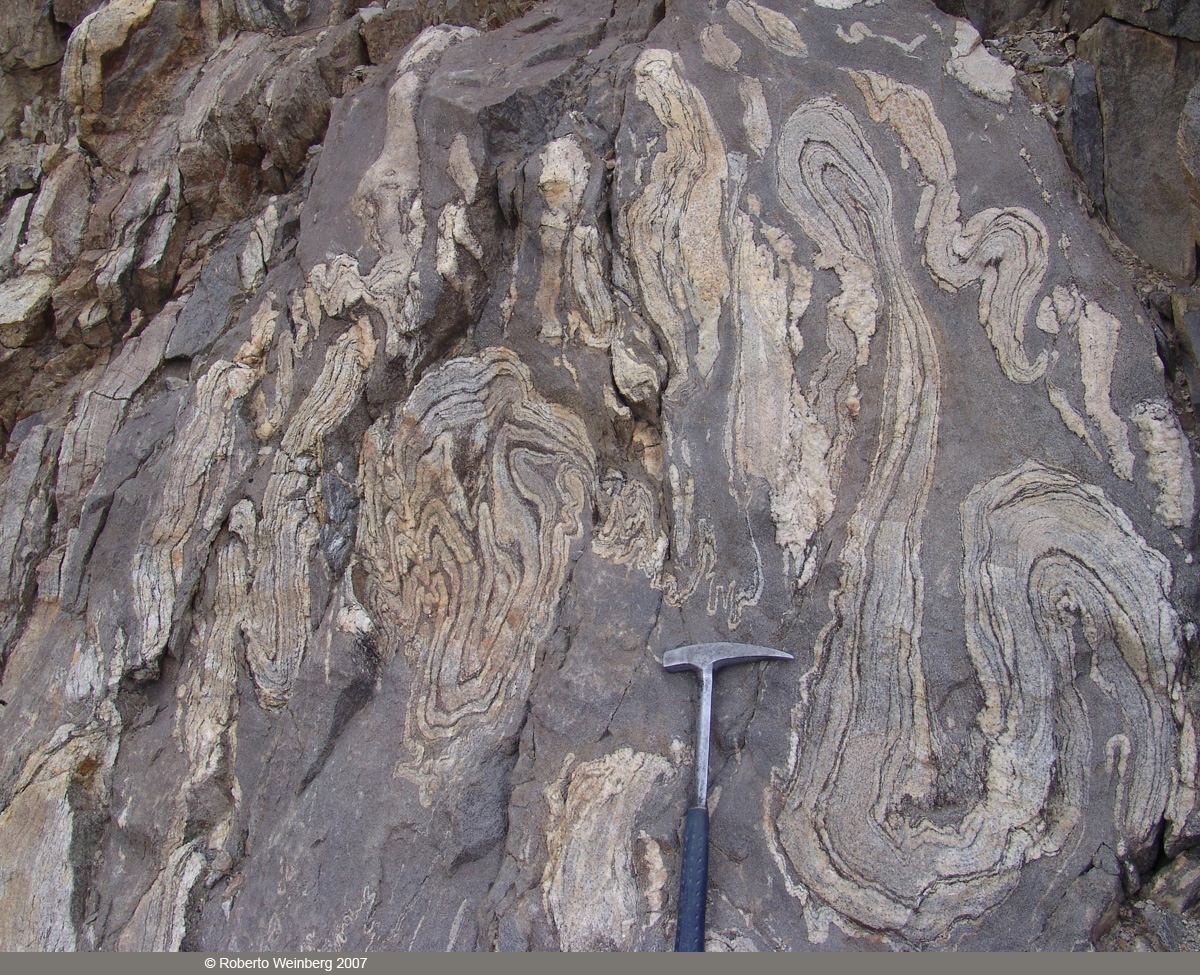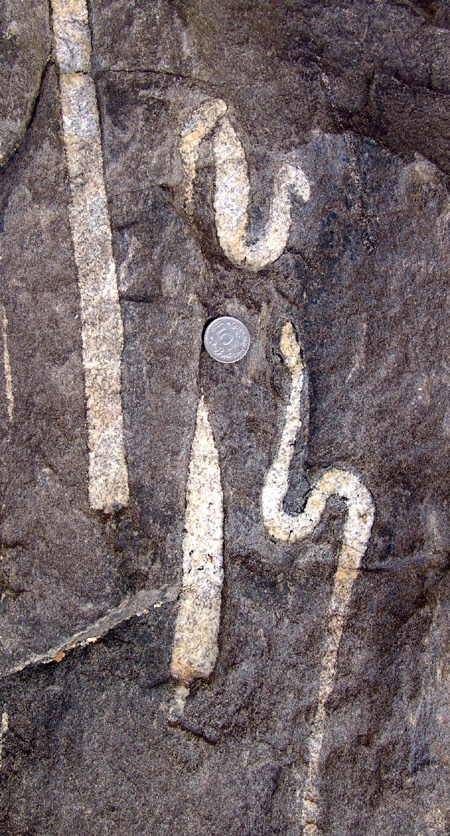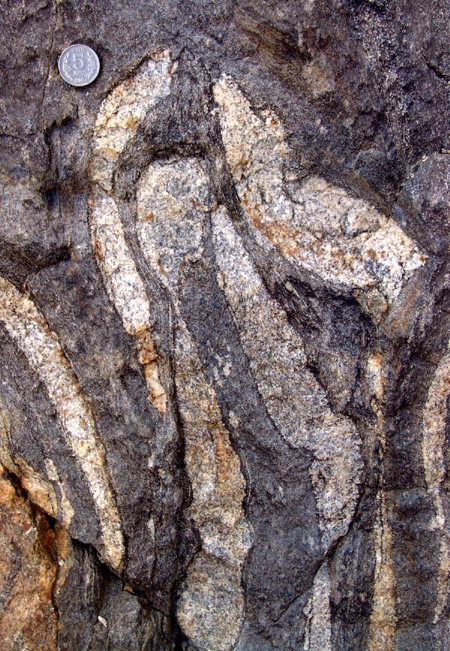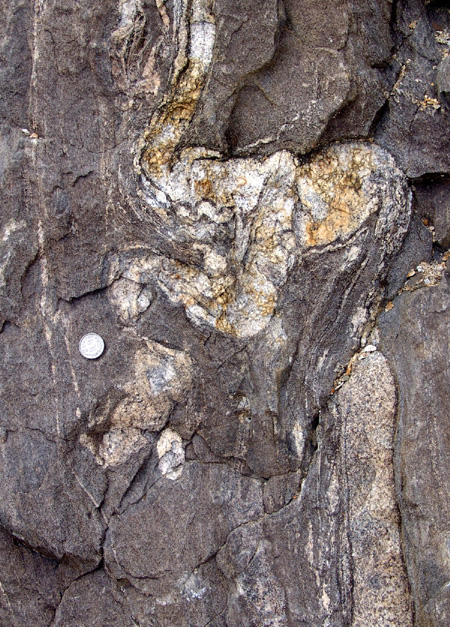Disharmonic Folds in Biotite-Psammite, Tangtse, Karakoram Shear Zone, Ladakh, NW India
|
 Figure 1. Deformed leucogranite dykes displaying disharmonic, irregular
and ptygmatic folds in a biotite psammite in the Karakoram Shear Zone,
Ladakh, NW India. Melting of the psammite took place at approximately
17Ma.
Figure 1. Deformed leucogranite dykes displaying disharmonic, irregular
and ptygmatic folds in a biotite psammite in the Karakoram Shear Zone,
Ladakh, NW India. Melting of the psammite took place at approximately
17Ma.
| From McLellan, 1984, Geol. Mag., 121,
p. 339: "in partially molten systems contaning more than 30% melt the
classical theories of fold formation are inapplicable; the folds
produces are of the 'viscous fold' type. Their geometries are
impredictable and may mimic structures due to refolding..." |
Figure 1B. |
Figure 1C. Ptygmatic folds at the hinge zone of B. |
Figure 1D. Folded and boudinaged dykes. |
Figure 1E. Detail of D showing pegmatite in bouding neck. |
Leucogranite dykes displaying disharmonic (ptygmatic), irregular folds in a biotite psammite in the Karakoram Shear Zone, Ladakh, NW India. Melting of the psammite took place at approximately 17Ma. THE FOLLOWING PHOTOS ARE ALL FROM THE SAME REGION OF ABOUT 100 X 100 M, WHERE LEUCOGRANITE AND PEGMATITE DYKES INTRUDE AND ARE DEFORMED WITHIN A BIOTITE PSAMMITE LAYER.
Figure 2. |
Figure 3. Ptygmatic folds at the hinge zone of Fig. 2. |
 Figure 4. Discontinuous leucogranite folds. |
 Figure 5. Leucogranite folds. Hinge zones broken up by the surrounding psammite. Discontinuous limbs. |
Figure 6. Irregular, rootless folds |
 Figure 7. |
Figure 9. Irregular, rootless folds. Figure 8. Irregular, rootless folds. |
|
Figure 10A. Folded and boudinaged leucogranite dyke |
Figure 10B. Detail of A |
Figure 11A. |
Figure 11B. |